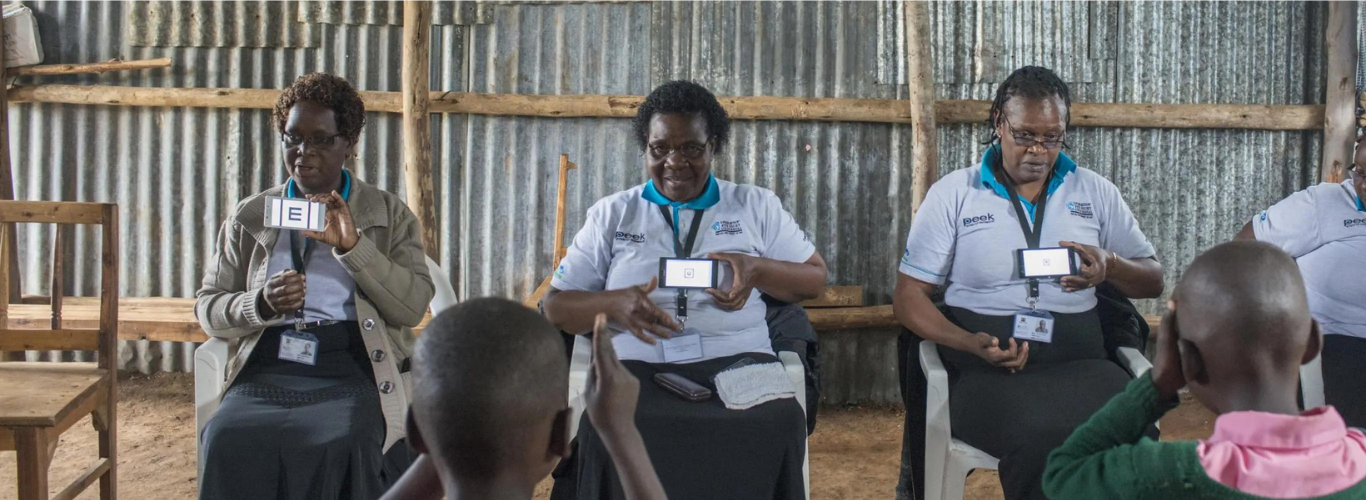Publication
- Published in The Lancet Global Health, 2018.
Background
This randomised controlled trial compared a school eye health programme powered by Peek to a conventional programme. More than 20,000 children participated across 50 schools in Trans Nzoia County, Kenya. In both arms of the trial, which was conducted in partnership with the Kenyan Ministry of Health, specially-trained teachers carried out the vision screening.
If the Peek vision check identified a visual impairment, the child was shown how their impaired distance vision compared to normal vision. They were then given a print-out of this simulation along with details of their appointment to take home to their parent or carer, who also received automated text message reminders about their appointment. In the control group, schoolchildren referred after a standard paper-based vision test received a written hospital referral letter. Attendance at hospital appointments was tracked up to eight weeks after screening.
What did the research show?
- Doubling access to care: More than half (54%) of the children who participated in the Peek-powered programme attended their follow-up appointment within eight weeks compared with 22% of those who received conventional care.
- Task-shifting for improved efficiency: Teachers were able to use Peek to effectively screen and refer children for further treatment, so specialist eye health personnel could maximise their time spent treating those who needed it.
- Real-time visibility: Using Peek meant that school eye health programme managers acquired real-time visibility of children’s’ journey through the health system. Barriers to accessing care could be more easily identified and removed.
In this study – which is the first of its kind – we found that the Peek school eye health system substantially increased the proportion of children who attended their hospital appointment. Today, more than 80% of people in Kenya own a mobile phone – more than have access to clean water – so it makes sense to use this technology to improve the efficiency of our health care system.”
Dr Hillary Rono
Study lead author and Peek researcher
Collaborators
- Peek Vision
- International Centre for Eye Health at the London School of Hygiene & Tropical Medicine
- Kitale County Hospital
Funding
Seeing is Believing, Operation Eyesight Universal, Queen Elizabeth Diamond Jubilee Trust, and Wellcome Trust.
